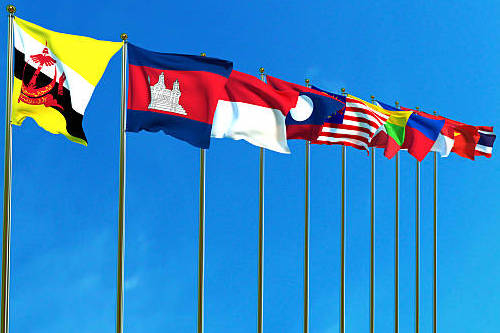
Jan 21, 2013 | News
 The ICJ calls on the ASEAN Intergovernmental Commission on Human Rights (AICHR) to take an active role in determining the fate and whereabouts of Sombath Somphone, a community leader in Laos.
The ICJ calls on the ASEAN Intergovernmental Commission on Human Rights (AICHR) to take an active role in determining the fate and whereabouts of Sombath Somphone, a community leader in Laos.
The ICJ also calls on the AICHR to fulfill its mandate under Article 4, paragraph 1.11 of its Terms of Reference, and develop a common position and strategy for tackling the serious problem of enforced and involuntary disappearances in the ASEAN region.
This position must aim towards hastening the resolution of cases of enforced and involuntary disappearances in the region, as well as effectively preventing these violations in the future.
Sombath Somphone is the founder and former director of the Participatory Development Training Center (PDTC) and 2005 recipient of the prestigious Ramon Magsaysay Award for Community Leadership.
He also led Laos’ civil society groups in participating at the Asia-Europe People’s Forum (AEPF) held in October 2012.
He was last seen being stopped by local police at the Thadeau police station on 15 December 2012, at around 5:00pm.
His family has no information on his fate or whereabouts to this day.
“It should be an urgent concern for the AICHR to give sustained priority to this case and it should vigorously encourage the government of Laos to make every effort to locate him,” said Sam Zarifi, Regional Director of the ICJ for Asia and the Pacific.
“The AICHR should seize this case as a chance to address the issue of enforced and involuntary disappearances in the ASEAN,” Zarifi added. “It should use its mandate to formulate a common position on this issue, to push governments to resolve cases of enforced and involuntary disappearances in the region.”
Following his “disappearance”, the AEPF requested ASEAN parliamentarians to conduct a mission to Laos to investigate the case.
To that end, three parliamentarians from the Philippines, Indonesia, and Malaysia traveled to Laos from 13 to 15 January 2013 and spoke to high-level representatives of government about the “disappearance” of Sombath Somphone.
One of the parliamentarians, Mr. Charles Santiago, observed that the government of Laos had evinced no political will to resolve this case.
He noted the half-hearted efforts of police in investigating this case, as illustrated by the fact that they had only called in twice Ng Shui Meng, Sombath Somphone’s wife, since her husband had been missing.
On both occasions, she was asked questions irrelevant to the case, such as how long they had been married, whether or not they had children, and where they reside.
The parliamentarians made it clear that finding Sombath Somphone, a well-known civil society leader, is crucial.
As pointed out in a public statement by Mr. Walden Bello, the parliamentarian from the Philippines, “the immediate surfacing of Mr. Sombath is in the interest of all parties, of Mr. Sombath and his family, of the Lao PDR, and of the ASEAN.”
The ICJ recalls that all States, including Laos, have an obligation to conduct a prompt, thorough and independent investigation wherever there are reasonable suspicions of enforced or involuntary disappearance.
The ICJ also emphasizes that resolving the case of Sombath Somphone is important not only for Laos, but also for the ASEAN as a region.
His citation for the Ramon Magsaysay Award for Community Leadership indicates he is recognized for “his hopeful efforts to promote sustainable development in Laos by training and motivating its young people to become a generation of leaders.”
His work not only benefits the people of Laos, but also contributes to the aspiration of ASEAN as expressed in its Charter, which is that of ensuring “sustainable development for the benefit of present and future generations and to place the well-being, livelihood and welfare of the peoples at the center of the ASEAN community building process.”
Sombath Somphone is the kind of leader integral to the realization of this vision of the ASEAN.
Contact:
Emerlynne Gil, International Legal Advisor, International Commission of Jurists, Bangkok; m: +66 840923575, email: emerlynne.gil@icj.org
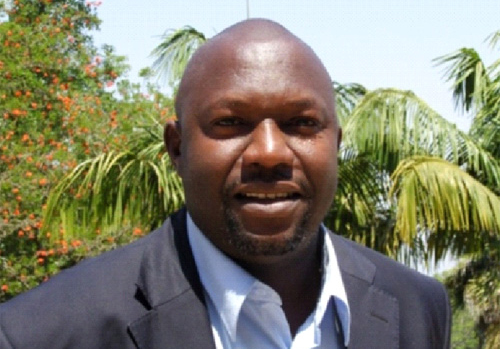
Jan 17, 2013 | News
 The ICJ expresses great concern over the recent pattern of attacks on human rights defenders in Zimbabwe by the Law and Order Section of the Zimbabwe Republic Police (ZRP).
The ICJ expresses great concern over the recent pattern of attacks on human rights defenders in Zimbabwe by the Law and Order Section of the Zimbabwe Republic Police (ZRP).
The ICJ says the systematic assault on human rights defenders has taken the form of arbitrary arrests of human rights practitioners, unjustifiable raids on their offices and interference with their meetings amongst other forms of harassment.
Such attacks have been a continuous source of international concern, including when raised by United Nations Human Rights Council in its Universal Periodic Review of Zimbabwe in 2011.
There has been a failure on the part of the Zimbabwe judiciary to exercise its responsibility of judicial oversight over these abuses, the ICJ adds.
“Government officials including the ZRP are using repressive laws to harass and intimidate human rights defenders and NGOs with the aim of causing them to abandon their work in promoting and defending human rights in Zimbabwe,” said Martin Masiga, Deputy Director of the Africa Regional Programme of the ICJ. “It is deplorable that the government has contrived to fabricate charges against its own citizens to discredit, delegitimize and frustrate their lawful civic activities.”
The ICJ underscores the reports of the arrest of Zimbabwe Human Rights Association (ZimRights) Director Okay Machisa (photo) on Monday, 14 January 2013 in Harare on charges of allegedly “conspiring to commit voter registration fraud and publishing or communicating falsehoods”.
The magistrate in this matter denied bail for reasons inconsistent with international fair trial standards and which appeared to be politically motivated.
The arrest of Okay Machisa follows the detention of his deputy, Leo Chamahwinya and three other staff members of ZimRights in December 2012 on the same charges.
These arrests occurred just a few weeks after ZimRights [publicly] denounced the trend of increasing police brutality across Zimbabwe and called for urgent action by competent authorities to address these human rights violations.
The Zimbabwean Constitution, the African Charter on Human and Peoples’ Rights and the International Covenant on Civil and Political Rights, to which Zimbabwe is a state party, guarantees the right to the freedom of opinion, expression and association.
The UN Declaration on Human Rights Defenders, which articulates universal standards for the protection of those working to protect human rights, affirms that “everyone has the right, individually and in association with others, to promote and to strive for the protection and realization of human rights and fundamental freedoms at the national and international levels “.
Accordingly, Zimbabwe has a legal obligation to protect those persons and organisations that strive for the protection and promotion of human rights.
Zimbabwe reportedly will hold national elections in 2013, the first since the formation of the Government of National Unity following the tragic events of the 2008 national election.
The ICJ insists it is essential for the people of Zimbabwe and for the advancement of Zimbabwe in the arena of constitutional democracy that State officials exercise their responsibility to protect human rights activists instead of attacking them.
The ICJ urges the Government of Zimbabwe to respect regional and international human rights standards, and to call upon its law enforcement agencies to cease the harassment and intimidation of HRDs in Zimbabwe.
The ICJ calls on the Zimbabwean judiciary to exercise its responsibility to uphold international fair trial standards and the constitutional provisions of Zimbabwe in adjudicating the matters relating to human rights defenders, including the officials of ZimRights.
Contact:
Martin Okumu-Masiga, Deputy Director of the ICJ Africa Regional Programme, t: +27110248268; e-mail: martin.okumu-masiga(at)icj.org
![Arthur Chaskalson mourned]()
Dec 3, 2012 | News
 It was with great sadness that the ICJ learned of the death of its former President Arthur Chaskalson at the age of 81 this weekend.
It was with great sadness that the ICJ learned of the death of its former President Arthur Chaskalson at the age of 81 this weekend.
A renowned human rights lawyer and a tenacious opponent of the apartheid government, Arthur Chaskalson was part of Nelson Mandela’s defence team in the 1963 Rivonia Trial, which saw Mandela and other ANC leaders sentenced to life.
He then helped establish the Legal Resources Centre, a non-profit organization seeking to use the law to pursue justice and human rights around South Africa. He ran the Centre from 1978 until 1993.
President of South Africa’s Constitutional Court (1994-2001), Chaskalson became Chief Justice of the same court from 2001 to 2005, after which he retired.
He was elected as an ICJ Comissioner in 1995 and served as President of the organization from 2002 to 2008.
In 2005, the ICJ convened the Eminent Jurists Panel, comprising eight leading international experts who spent three years conducting a worldwide investigation into the impact of counter-terrorism laws and practice on human rights globally.
Arthur Chaskalson chaired the panel, which held 16 hearings covering forty countries in all regions of the world.
Chaskalson also played a major role in the panel’s report, which concluded that many States had confronted the threat of terrorism with ill-conceived measures undermining the Rule of Law and human rights, which has proved to be an important reference for the post 9/11 era.
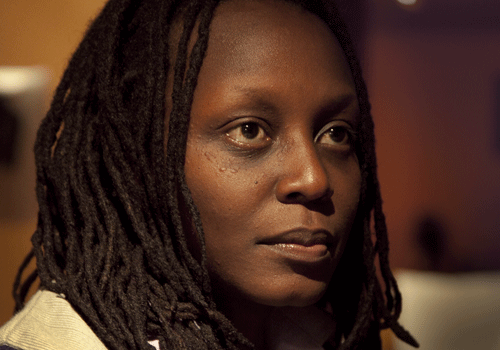
Nov 30, 2012 | News
The ICJ condemns the reintroduction of Anti-Homosexuality Bill in the Ugandan Parliament. The bill has passed out of committee and is expected to come to a floor vote in early December.
According to reports from civil society organizations in Uganda, the bill still contains the death penalty for acts of “aggravated homosexuality.”
In addition, the Anti-Homosexuality Bill criminalizes the promotion of homosexuality, which is defined to include all advocacy activities.
“Adopting the Anti-Homosexuality Bill would be a serious threat to the human rights and human dignity of LGBT individuals and organizations,” said Alli Jernow, Senior Legal Adviser at the ICJ. “Under the Bill, not only might someone face life in prison or the death penalty for being gay, but human rights defenders would also be prevented from speaking out to challenge the law.”
Under the Bill, anyone in authority, such as a teacher or medical professional, who fails to report an offence to law enforcement within twenty-four hours, is liable to three years’ imprisonment.
The ICJ says the bill is dangerous and deadly and urges Parliament to reject it.
Parliament must also reaffirm the rights to non-discrimination, privacy, freedom of expression and freedom of association for all Ugandans, the ICJ adds.
The Anti-Homosexuality Bill has already been used to justify a general clampdown on civil society in Uganda.
Meetings and workshops have been disrupted and advocacy groups working on human rights have been threatened.
In February 2012, the Minister of State for Ethics and Integrity, Simon Lokodo, shut down a capacity-building session for LGBT activists organized by Freedom and Roam Uganda (FARUG) at a hotel in Entebbe and threatened to arrest FARUG’s executive director Kasha Jacqueline Nabagesera (picture above).
In June 2012, police raided a workshop for East African LGBT human rights defenders that had been organized by the East and Horn of Africa Human Rights Defenders Project and they detained participants for several hours.
Minister Lokodo also told the press that he was going to ban 38 organizations that were “sympathetic to LGBT people.”
“If adopted, the bill would clearly violate the human rights of all Ugandans,” Jernow added.
International human rights law, including treaties to which Uganda is a party, prohibit the criminalization of same-sex sexual conduct and forbid the imposition of the death penalty for non-violent conduct, including sexual relations between consenting adults.
International human rights law also guarantees the right of everyone, regardless of sexual orientation or gender identity, to freedom of expression, association and peaceful assembly.
Contact:
Alli Jernow, ICJ Senior Legal Advisor, t + 41 22 979 3823 ; e-mail: alison.jernow(at)icj.org
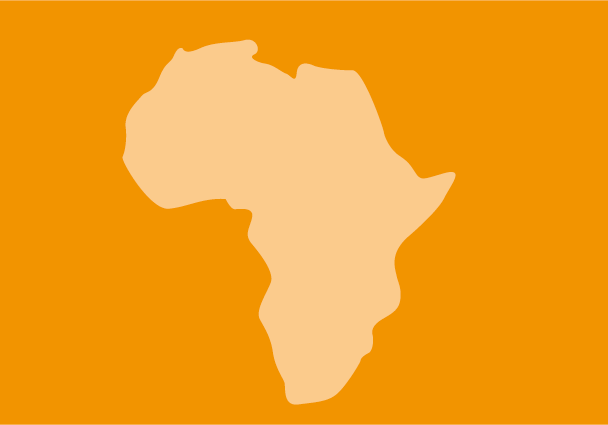
Oct 31, 2012 | News
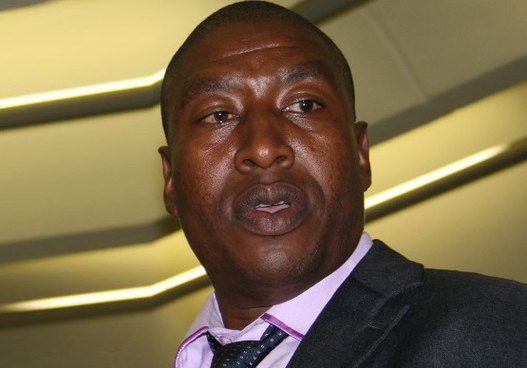 The ICJ welcomed the judgment issued on 24 October 2012 by the Zimbabwe High Court in favour of Farai Maguwu, a human rights defender and director of the Centre for Research and Development.
The ICJ welcomed the judgment issued on 24 October 2012 by the Zimbabwe High Court in favour of Farai Maguwu, a human rights defender and director of the Centre for Research and Development.
In September 2011, members of the Central Intelligence Organisation (CIO) confiscated a number of Farai Maguwu’s possessions, including cash, a laptop computer, a camera, and bank cards, at the Harare International Airport while he was about to depart for a human rights conference in Ireland.
The ICJ is concerned that the seizure of property may have been undertaken as an attack on Farai Maguwu for his legitimate human rights work.
According to media reports, Hon. Justice Mathonsi ordered, “the seizure of the applicant’s property by the State agents…be and is hereby declared wrongful, unlawful and unjustified”.
Since the confiscation of his property by the CIO over a year ago, no charges had been brought against Mr Maguwu, neither was his property returned.
Justice Mathonsi affirmed that deprivation of property must only be done in accordance with due process of law. Farai Maguwu had not been advised of the legal basis or reasons for the seizure of his property.
“We congratulate the judiciary of Zimbabwe for this judgment which adheres to the principles of the rule of law, justice and respect for human rights. Furthermore, it is a reminder to State agents that in carrying out their duties they ought to do so within the parameters of the rule of law,” commented Martin Masiga, Deputy Director of the ICJ Africa Regional Programme.
The ICJ calls on the Zimbabwean judiciary to continue to uphold the rule of law and fulfil their responsibility in protecting human rights in Zimbabwe.
Contact:
Martin Masiga, Deputy Director, ICJ Africa Regional Programme, t: +27 11 02482

 The ICJ calls on the ASEAN Intergovernmental Commission on Human Rights (AICHR) to take an active role in determining the fate and whereabouts of Sombath Somphone, a community leader in Laos.
The ICJ calls on the ASEAN Intergovernmental Commission on Human Rights (AICHR) to take an active role in determining the fate and whereabouts of Sombath Somphone, a community leader in Laos.









